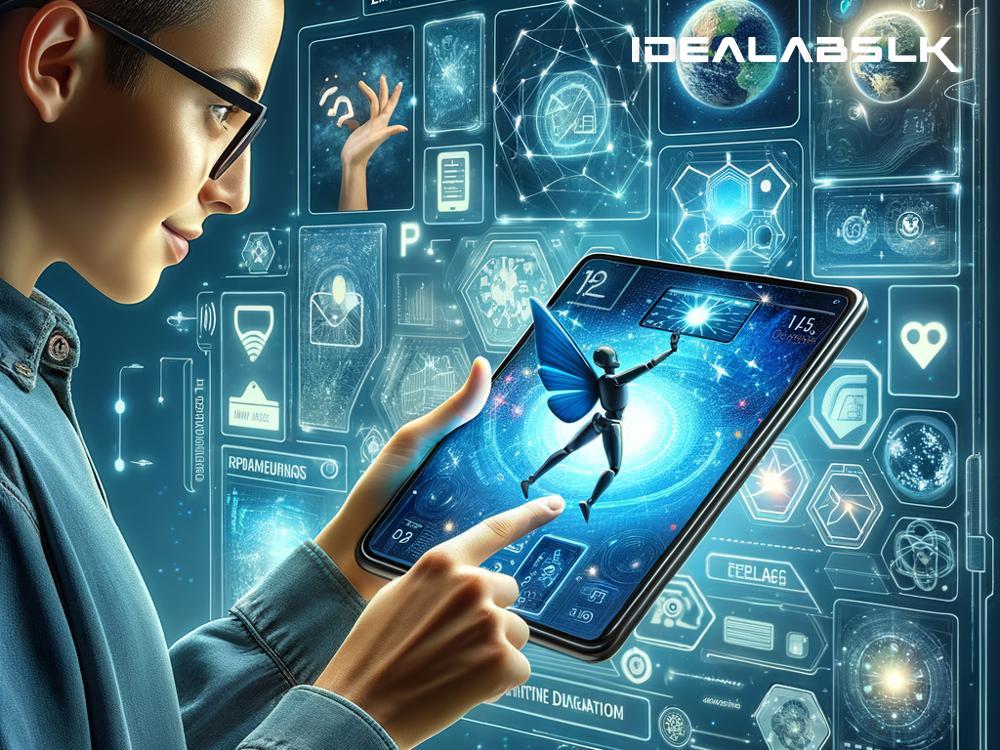How AI Personalizes Interfaces in Foldable Devices
In today's fast-paced world, technology is not just evolving; it's transforming the way we interact with our devices. Foldable devices have stormed the market, offering a unique blend of convenience and innovation. But there's an invisible force that's making these foldable gadgets even more user-friendly and intuitive: Artificial Intelligence (AI). Let's take a closer look at how AI is personalizing the interfaces of foldable devices, making our interaction with technology more seamless than ever.
The Magic of Foldable Devices
Foldable devices, as the name suggests, can be folded thanks to their flexible screens. This feature not only makes them super cool and futuristic but also incredibly versatile. You can have a phone and tablet all in one, adjusting the size according to your needs. However, the real magic happens when AI steps in to personalize these devices.
Understanding Your Habits
One of the first ways AI personalizes the interface of foldable devices is by understanding and adapting to your habits. AI algorithms can learn how you use your device throughout the day. For instance, if you tend to watch videos or browse the internet during your commute, AI can ensure that your social media apps and video platforms are more accessible on your home screen during these times. This kind of personalization makes your device feel truly yours, as it adapts to fit your daily routine.
Optimizing Screen Space
With the luxury of expandable screens, AI takes the opportunity to optimize the available screen space. Unlike traditional smartphones where space is limited, foldable devices offer a larger canvas. AI can suggest or automatically adjust the layout of your apps and features based on what you're doing. For example, if you're reading an article, AI might offer a more comfortable reading mode with larger text and minimal distractions, taking full advantage of the expanded screen.
Contextual Awareness
AI in foldable devices also shines with its contextual awareness. It can understand the physical context of how the device is being used. If you've unfolded your device halfway, AI might deduce you're trying to take a selfie and promptly open the camera app in the perfect layout for that. Or, if you've fully expanded your device, AI might prepare your workspace with productivity apps spread out for easy access. This kind of intelligence makes interactions feel natural and fluid.
Anticipating Needs
Perhaps one of the most impressive features of AI in foldable devices is its ability to anticipate your needs. Through learning and understanding your patterns and behaviors, AI can predict what you might need next. If you usually check your calendar first thing in the morning, your device might have it ready for you as soon as you wake up. Or if you tend to order food around the same time in the evening, AI might subtly suggest your favorite food delivery apps around that time. This level of anticipation adds a layer of convenience to our already busy lives.
Enhancing Accessibility
AI doesn't just make things convenient; it also makes technology more accessible. For users with different needs, AI can personalize the interface to ensure that everyone can enjoy the benefits of foldable devices. Whether it's by enlarging icons for those with vision impairments or simplifying the interface for those who find technology challenging, AI is making sure that foldable devices are inclusive for all.
Learning Continuously
The beauty of AI is that it's always learning and evolving, just like us. With each interaction, AI gets smarter and more attuned to the user's needs. This means that the personalization of your foldable device's interface will only get better over time. It's a technology that grows with you, continually enhancing your experience.
In conclusion, AI is not just a background player; it's a transformative force personalizing the interface of foldable devices in ways we've only started to explore. From understanding habits to enhancing accessibility, AI is making sure that our technology is not just smarter but also more intuitive and responsive to our individual needs. As we continue to unfold the potential of these devices, one thing is clear: AI will be right there, shaping our interactions to be more seamless and personalized than ever before. Who knew that the future of technology would not only fold but also adapt right in the palm of our hands?

